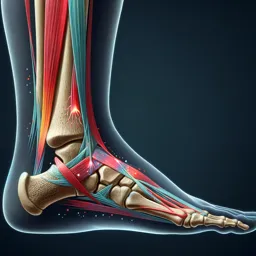Introduction
Physiotherapy has emerged as a cornerstone in pain management, offering holistic, non-invasive solutions for individuals experiencing acute or chronic discomfort. By addressing the root causes of pain and promoting functional improvement, physiotherapists help patients reclaim their quality of life.
Common Sources of Pain
- Musculoskeletal injuries: Sprains, strains, and overuse injuries.
- Chronic conditions: Arthritis, back pain, and fibromyalgia.
- Post-surgical pain: Following orthopedic or neurological procedures.
- Sports injuries: Including repetitive strain injuries.
Physiotherapy Assessment
Effective pain management begins with a thorough assessment. Physiotherapists evaluate medical history, posture, movement patterns, and pain triggers to develop a tailored treatment plan.
Key Physiotherapy Techniques for Pain Management
- Manual Therapy: Hands-on mobilization and manipulation of joints and soft tissues to relieve pain and restore movement.
- Therapeutic Exercises: Strengthening, stretching, and conditioning routines designed to enhance mobility and reduce pain.
- Electrotherapy: Modalities such as ultrasound, TENS (Transcutaneous Electrical Nerve Stimulation), and interferential therapy to alleviate pain and inflammation.
- Education and Advice: Teaching patients about ergonomics, lifestyle modifications, and self-management strategies for long-term pain control.
Outcomes and Benefits
Patients undergoing physiotherapy for pain management often experience:
- Reduced reliance on pain medications
- Improved movement and flexibility
- Enhanced strength and endurance
- Decreased risk of recurrent pain episodes
- Greater confidence and independence in daily activities
When to Seek Physiotherapy
If persistent pain interferes with your daily life or mobility, consulting a physiotherapist is a proactive step. Early intervention leads to better long-term results and helps prevent pain from becoming chronic.
Conclusion
Physiotherapy plays a pivotal role in managing pain across various conditions and age groups. Using evidence-based techniques, physiotherapists empower individuals to overcome pain, restore function, and move forward with confidence.































